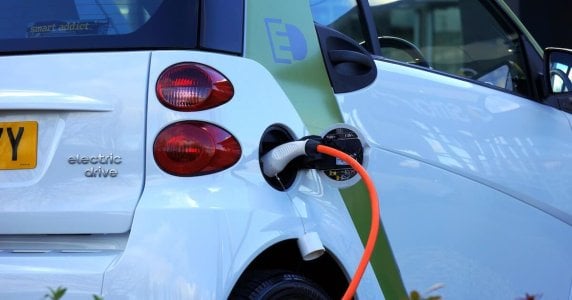Attention drivers! Prepare for a major change on Australian roads
- Replies 12
Though coming in late to the race, Australia is finally on board with the idea of fuel efficiency and lower emissions.
Just last week, the federal government announced they would be introducing a Fuel Efficiency Standard in Australia by the end of this year. There had been a draft in the works for a long time, and now it’s finally seeing the light of day.
The Albanese government will impose a Fuel Efficiency Standard on new cars as part of a new strategy to encourage hybrid and electric vehicle (EV) uptake and cut 3M tonnes of carbon emissions by 2030. The government is set to introduce a draft of the document by the end of the year.
This decision was backed by many organisations, including the NRMA, who agreed that the move would help provide greater access and affordability to lower or zero-emission vehicles.
Rohan Lund, CEO of NRMA Group, said in a statement: ‘It is the NRMA’s view that if we adopt sensible standards, we can give more choice to Australians looking to buy affordable, fuel-efficient vehicles – while at the same reducing our reliance on imported fuel and delivering a meaningful reduction in carbon emissions.’
However, despite numerous reviews, this latest strategy does not include new targets for hybrid or electric vehicle uptake or what the standard should look like.
It was reported that another consultation process would decide the specifics over the next year.
Climate Change and Energy Minister Chris Bowen said that the government’s EV policy would ‘provide greater choice for Australians to drive cars that are cleaner and cheaper to run’.
‘Fuel efficiency standards would require more affordable electric vehicles to be sent to Australia,’ the minister shared in a recent press conference.
He added that car company executives told him they could not ‘convince’ their global boards to send more fuel-efficient vehicles to Australia because of the lack of policy.
‘In other countries, there’s a much bigger range of electric vehicles available for people. We want people of all walks of life, regardless of their income, to have the chance to consider buying an electric vehicle,’ he continued.
On average, newer cars in Australia use 40 per cent more fuel than the European Union, 20 per cent more than the United States, and 15 per cent more than New Zealand.
The strategy claims that introducing a standard for fuel efficiency would encourage car manufacturers to supply more eco-friendly cars to the country.
Behyad Jafari, Chief Executive of the Electric Vehicle Council, said: ‘The technology continues to improve, and electric vehicles around the world are available in more segments, like utes and more SUVs or cheaper electric vehicles, but often they're just not brought to Australia.’
Manufacturers who fail to meet the carbon emissions cap will face fines.
This comes after reports that drivers could be, unknowingly, breaking a little-known road rule. The fines are heavy as well; drivers in certain states could face penalties as high as $3,200 and up to 20 penalty points. You can read more on this here.
Although several initiatives have already been introduced, such as 117 EV chargers on major highways, New Energy Apprenticeships, and New Energy Skills Programs, the recent announcement includes elements to make EVs more accessible. These include:
Professor Peter Newman from the Sustainability Policy Institute at Curtin University said: ‘For the most part, the strategy is good news, and it’s a big day when we can say we have hastened the end of oil. However, it also misses a few opportunities, such as not setting a phase-out date for petrol and diesel vehicles.’
He added that the strategy didn’t mention whether electric bikes and trackless trams have also been ‘given due attention’. ‘These are often overlooked in favour of electric cars, despite being an important piece of the sustainability puzzle,’ he continued.
Although these components haven’t been discussed in detail, the strategy does mention promoting electric transport to help reduce carbon emissions.
Currently, only Australia, Russia, Turkey and Indonesia are the only developed countries without a standard in place.
Cars and light commercial vehicles such as buses alone are over 10 per cent of Australia’s total emissions. However, electric vehicles could contribute to the country reaching net zero by 2050.
 Members, what do you think? Do you support this move? Let us know in the comments below!
Members, what do you think? Do you support this move? Let us know in the comments below!
Just last week, the federal government announced they would be introducing a Fuel Efficiency Standard in Australia by the end of this year. There had been a draft in the works for a long time, and now it’s finally seeing the light of day.
The Albanese government will impose a Fuel Efficiency Standard on new cars as part of a new strategy to encourage hybrid and electric vehicle (EV) uptake and cut 3M tonnes of carbon emissions by 2030. The government is set to introduce a draft of the document by the end of the year.
This decision was backed by many organisations, including the NRMA, who agreed that the move would help provide greater access and affordability to lower or zero-emission vehicles.
Rohan Lund, CEO of NRMA Group, said in a statement: ‘It is the NRMA’s view that if we adopt sensible standards, we can give more choice to Australians looking to buy affordable, fuel-efficient vehicles – while at the same reducing our reliance on imported fuel and delivering a meaningful reduction in carbon emissions.’
However, despite numerous reviews, this latest strategy does not include new targets for hybrid or electric vehicle uptake or what the standard should look like.
It was reported that another consultation process would decide the specifics over the next year.
Climate Change and Energy Minister Chris Bowen said that the government’s EV policy would ‘provide greater choice for Australians to drive cars that are cleaner and cheaper to run’.
‘Fuel efficiency standards would require more affordable electric vehicles to be sent to Australia,’ the minister shared in a recent press conference.
He added that car company executives told him they could not ‘convince’ their global boards to send more fuel-efficient vehicles to Australia because of the lack of policy.
‘In other countries, there’s a much bigger range of electric vehicles available for people. We want people of all walks of life, regardless of their income, to have the chance to consider buying an electric vehicle,’ he continued.
On average, newer cars in Australia use 40 per cent more fuel than the European Union, 20 per cent more than the United States, and 15 per cent more than New Zealand.
The strategy claims that introducing a standard for fuel efficiency would encourage car manufacturers to supply more eco-friendly cars to the country.
Behyad Jafari, Chief Executive of the Electric Vehicle Council, said: ‘The technology continues to improve, and electric vehicles around the world are available in more segments, like utes and more SUVs or cheaper electric vehicles, but often they're just not brought to Australia.’
Manufacturers who fail to meet the carbon emissions cap will face fines.
This comes after reports that drivers could be, unknowingly, breaking a little-known road rule. The fines are heavy as well; drivers in certain states could face penalties as high as $3,200 and up to 20 penalty points. You can read more on this here.
Although several initiatives have already been introduced, such as 117 EV chargers on major highways, New Energy Apprenticeships, and New Energy Skills Programs, the recent announcement includes elements to make EVs more accessible. These include:
- Having a Fuel Efficiency Standard;
- More and more accessible charging infrastructure, including for those living in multi-level buildings;
- Moves to support battery recycling; and
- Funding to support EV guidance, demonstrations, and training for emergency workers.
Professor Peter Newman from the Sustainability Policy Institute at Curtin University said: ‘For the most part, the strategy is good news, and it’s a big day when we can say we have hastened the end of oil. However, it also misses a few opportunities, such as not setting a phase-out date for petrol and diesel vehicles.’
He added that the strategy didn’t mention whether electric bikes and trackless trams have also been ‘given due attention’. ‘These are often overlooked in favour of electric cars, despite being an important piece of the sustainability puzzle,’ he continued.
Although these components haven’t been discussed in detail, the strategy does mention promoting electric transport to help reduce carbon emissions.
Currently, only Australia, Russia, Turkey and Indonesia are the only developed countries without a standard in place.
Cars and light commercial vehicles such as buses alone are over 10 per cent of Australia’s total emissions. However, electric vehicles could contribute to the country reaching net zero by 2050.
Key Takeaways
- Australia's federal government is committed to introducing a Fuel Efficiency Standard, with a draft to be prepared by the end of the year.
- The introduction of the standard will encourage car manufacturers to supply more environmentally friendly cars that require little or zero fuel in Australia.
- Manufacturers that fail to meet their carbon emissions cap will face fines.
- Although many support the strategy, some elements are missing, such as not setting a phase-out date for petrol and diesel vehicles, focusing on electric bikes and electric trackless trams, and lacking detail on purchasing electric buses and other light vehicles.









